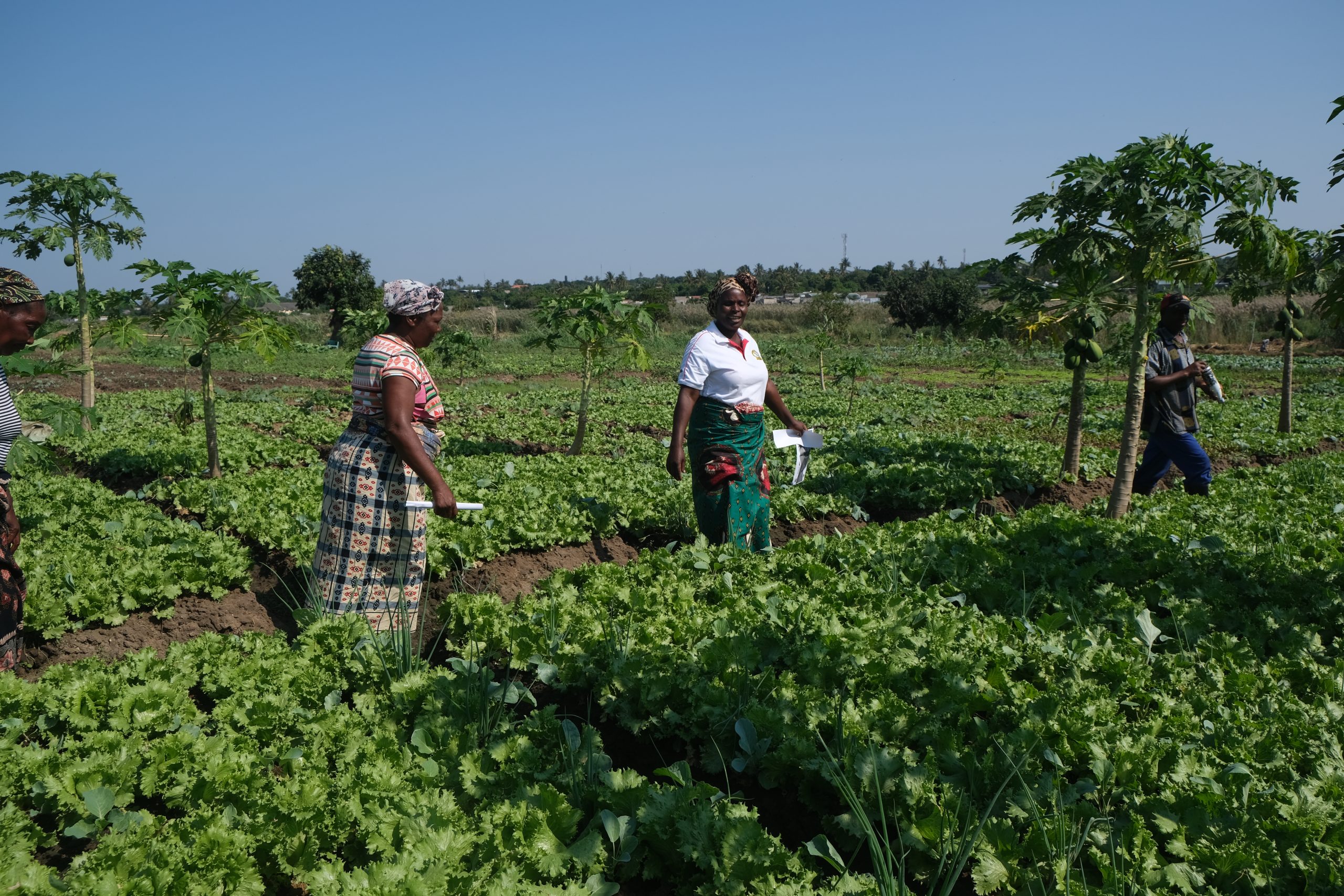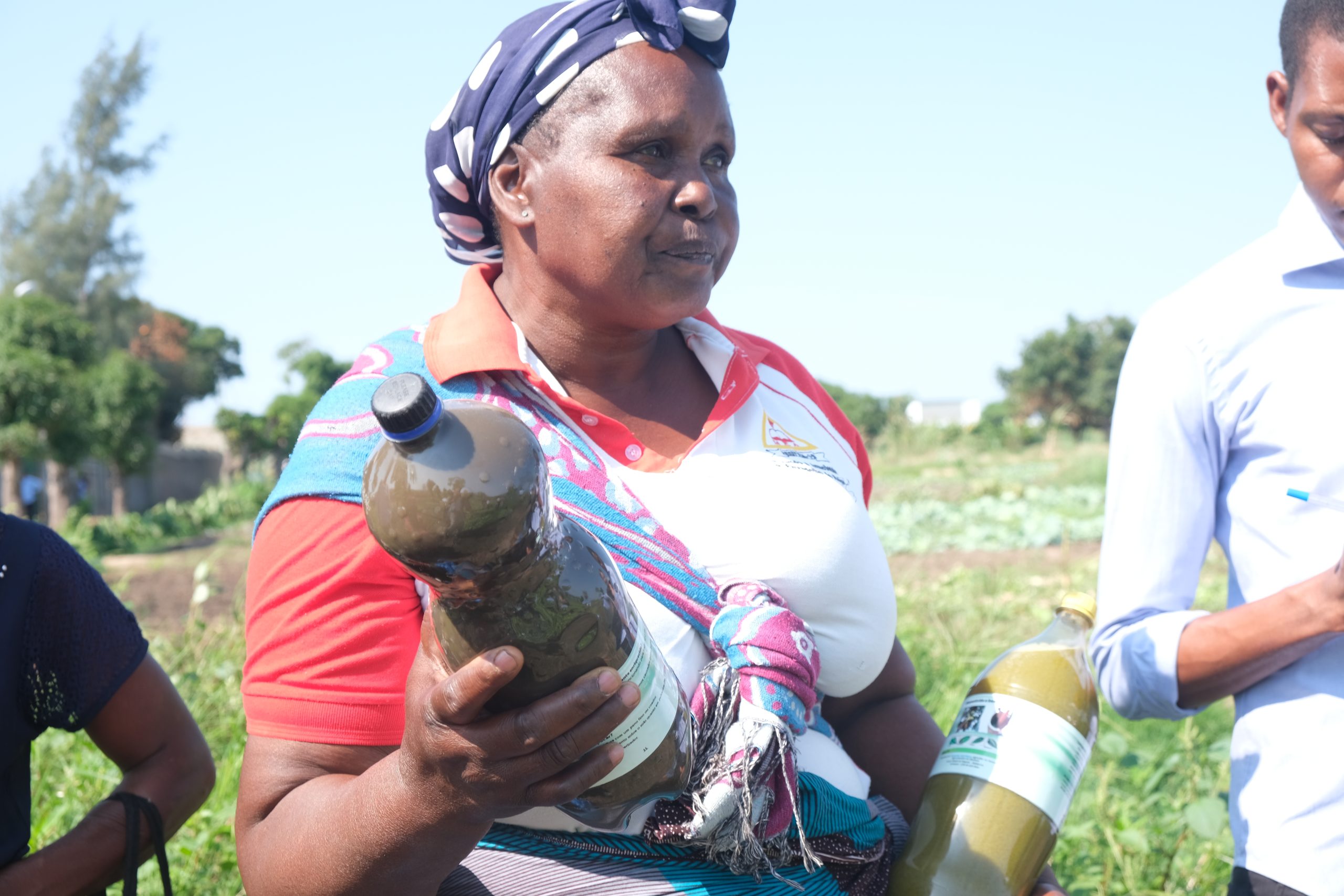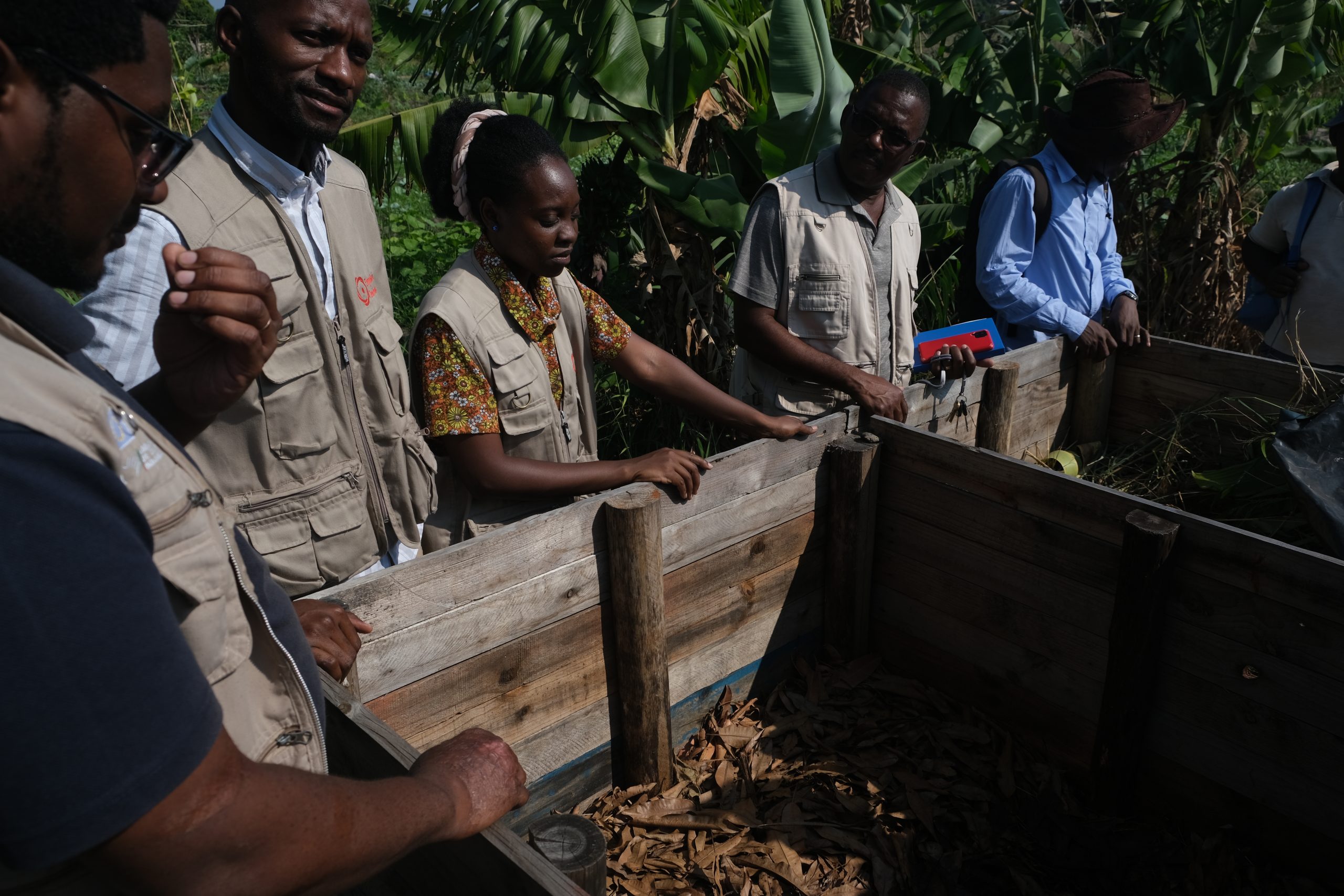Boosting Agroecology in Urban areas: the AGRI.URB project
Mozambique
The Agri.Urb project aimed at the improvement of food and nutritional security of families in the city of Maputo, and at the strengthening of sustainable agroecological urban agriculture in the peri-urban areas of the Zonas Verdes de Maputo through the promotion of training activities in agriculture, the support to local production of inputs, and small infrastructural interventions.
Lead organization
The Italian Agency for Development Cooperation (AICS) was established in 2014 and started to operate in January 2016, with the aim of aligning Italy with its principal European and global partners in the endeavor of development. Based in Rome, AICS runs another base in Florence and has 20 field offices worldwide for assessing local needs, implementing development initiatives, monitoring results and building partnerships on the ground. The Agency’s mission is to “perform technical and operational activities associated with the examination, development, financing, management and control of the cooperation initiatives. Within the Agency, the food security and rural development office is currently implementing around 120 initiatives, 60% of which is on rural development and 40% focuses on food security. Cross-cutting initiatives related to topics such as youth, gender, climate, agroecology, and community resilience to climate change, are also key in their programmes.
The project is operated by the AICS field office in Maputo (Mozambique).
Partner organizations:
- WeWorld-GVC is the implementing civil society organization. This Italy-based CSO was created in 2018 after the merger of two organizations (We World Onlus and Gruppo di Volontariato Civile (GVC)). Their work is focused on children, women and marginal communities, with a mission to guarantee a decent livelihood in a fair and inclusive world. They run humanitarian and economic programmes in Italy, and other countries in Africa, Caribbean and Latin America, South-East Asia and Middle East.
- AVSI: is an Italy-based NGO created in 1972 implementing development and humanitarian programmes in 40 countries (Africa, Caribbean and Latin America, South-East Asia and Middle East) including Italy. The NGO focuses on various topics including agriculture, energy, education, urban development, health, etc.
- Associação para Desenvolvimento Sustentável (ABIODES): is a Mozambique-based NGO created in 1999 which aimis at infusing sustainable and inclusive development through agriculture and the rational use of natural resources. They have three workstreams: (1) Agriculture and Food Security, (2) Environment and Natural Resources and (3) Lobbying and Advocacy.
- Associacao para a Defesa e Desenvolvimento da Sociedade (ADDESSO): is a Mozambique-based NGO working in the areas of education, environment, economic empowerment, health and citizenship.
Country
The project is implemented in four districts of the Municipality of Maputo (Mozambique Capital City)
Timeline
July 2022 – September 2023
Funding
USD 294 992 (EUR 270,000) funded by AICS
Mission
- Sustainably strengthen urban agroecological farming and livestock activities in the Green Zones of Maputo (Zonas Verdes de Maputo – ZVM) in the Municipal Districts of KaMavota and KaMubukwana.
- Contribute to the improvement of food and nutritional security of households in the City of Maputo.
- Reduce the overall use of inputs (both organic and synthetic) and use functional biodiversity.
Context
Maputo is home to 1.1 million people and is spread over 300 square kilometres. Maputo’s main urban agriculture characteristics are the extensive green areas known as “zonas verdes” (established by colonists two centuries ago) where 14,500+ farmers undertake their activity. Larger production systems are based on home gardens, small-scale and commercial farms, which mainly produce cabbage and lettuce through monoculture which leads to pest issues, high use of pesticides, and health risks. Around 40,000 inhabitants are involved in urban agriculture related activities, and 5% of the population directly earns revenues from agriculture. The population faces income challenges – 70% struggle to cover monthly food costs. There are many farmers associations in Maputo’s urban agriculture, whose role is to regulate land use rights and facilitate knowledge exchange (e.g. on-farm training, personal and farmer-to-farmer advising). The city’s main challenges and risks are linked to the impacts of climate change and water contamination.
Main beneficiaries
- Smallholder farmers (farms of 0,12 ha) growing mainly leaf vegetables (beets, cabbage and spinach)
- And 104 farmers members (40% women and 60% men) from 4 associations working in urban areas.
Strategy
Objectives
Specific Objective: Sustainably strengthen urban agroecological farming and livestock activities in the Green Zones of Maputo (Zonas Verdes de Maputo – ZVM) in the Municipal Districts of KaMavota and KaMubukwana.
Activities
Featured principles and elements of Agroecology:
Co-creation and exchange of knowledge, Recycling, Input Reduction and Soil Health, Connectivity and Economic Diversification
- Activities on Recruit 15-30 farmers and form a group.
- Organise training sessions, meetings and workshops regularly as part of a year-long program. The topics include agroecology principles, soil fertility management, biopesticides, composting, seed production, and water management, based on the Formação Agrícola Participativa (Participatory Agricultural Training, FAP) approach.
- Use participatory learning and knowledge exchange, which combines theory with practical demonstrations and encourages active participation on demonstration plots.
- Organise field visits and mentoring on the right use of agroecological practices by the project’s technical staff.
- Use Nitrogen-Fixing plants and mulching to increase the recirculation of nutrients.
- Use manure produced on farm thanks to the introduction of small animals like chickens and rabbits to reduce dependency on external inputs.
- Use intercropping (of 5 crops) and natural fences to increase crop and landscape diversity
- Use fruit trees to regenerate soil and provide shadow and windbreak.
- Use bio-pesticides and functional biodiversity produced on farm like garlic, chilli, soap and ash as natural repellents to manage pest and increase plant health.
- Organise agroecological fairs monthly.
- Organise discussions on the implementation of an agroecological label. This was already created, but the Participatory Guarantee Scheme (PGS) is not yet in place.
Monitoring and Evaluation Methods
The performance of the project was assessed by the AICS team through the Agroecology Finance Assessment Tool, a collective online tool which provides a methodological framework based on the 13 principles of agroecology to assess how much projects are contributing to agroecology. It also provides a guide for developing projects that implement agroecology. Results showed a good performance for co-creation and exchange of knowledge, synergy, soil health, and recycling.
Outcomes and Lessons Learned
Outcomes
- Agroecology in urban and peri-urban contexts brought multiple benefits, such as increased livelihood, biodiversity, resilience, and soil health.
- The Formação Agrícola Participativa (FAP) approach was effective in spreading agroecology practices to the 104 direct beneficiaries (40 women and 64 men) from four associations working in urban areas.
- The agroecology “lighthouses” (farmers experienced in agroecological practices) were well recognised among the association for their key role in promoting agroecology practices.
- Qualitative observations indicate that farmers who have transitioned to agroecological practices have experienced a significant decrease in input costs. For instance, an agroecological lighthouse farmer reported that he no longer incurs input costs as he produces everything himself, from biopesticides to biofertilisers, and even some seeds. The only inputs he still purchases are seeds that are particularly difficult to produce on his own. While these insights suggest substantial cost savings, a comprehensive quantitative analysis is needed to accurately measure the extent of these reductions.
- Agroecological fairs raised consumers’ awareness of agroecological products and linked them directly to farmers.
- It was noticed that agroecology practices seem to be more labour–intensive than conventional practices. The project addressed this perception by establishing both demonstration fields and identifying experienced farmers to act as agroecological “lighthouses”. These lighthouses exemplify how, although the initial transition to agroecology requires more labour, the system becomes increasingly resilient and less labour-intensive as it matures. Farmers in the early stages of adoption are invited to visit these experienced practitioners to witness firsthand the long-term benefits and sustainability of agroecological systems.
- The project provided incentives, such as organic manure and seeds suited to agroecological systems, along with technical support, to facilitate this transition. These inputs were crucial in enabling farmers to adopt agroecological practices more effectively and in encouraging broader uptake across the community.
Enabling Conditions
- Subsidies are necessary to mitigate the risk of the agroecological transition for farmers.
- The promotion of market access for agroecological products and direct selling are needed, given that agroecology is still a niche market and unknown to consumers. In this regard, labels can help consumers to differentiate agroecological products from conventional ones.
- Farmers produced very high-quality products (in terms of taste) compared to conventional products, so consumers were ready to pay more.
Limiting Factors
- The lack of subsidies to support the agroecological transition and the socio-economic pressure. Farmers were highly averse to the risk entailed by the transition.
- The high levels of urbanisation pressure and land speculation trigger conflicts of interest and difficulties in accessing land.
- The lack of favourable policies and regulations to scale up agroecology.
- The lack of specific channels or markets to distribute agroecological products.
Contact
Mr. Andrea Santopaolo, MSc UN Fellow at AICS field office in Maputo (Mozambique), andrea.santopaolo.ext@aics.gov.it
Mrs. Federica de Gaetano – PhD Technical Officer at AICS office VI Rural Development and Food Security, federica.degaetano@aics.gov.it
Picture credits: AICS Maputo Office




